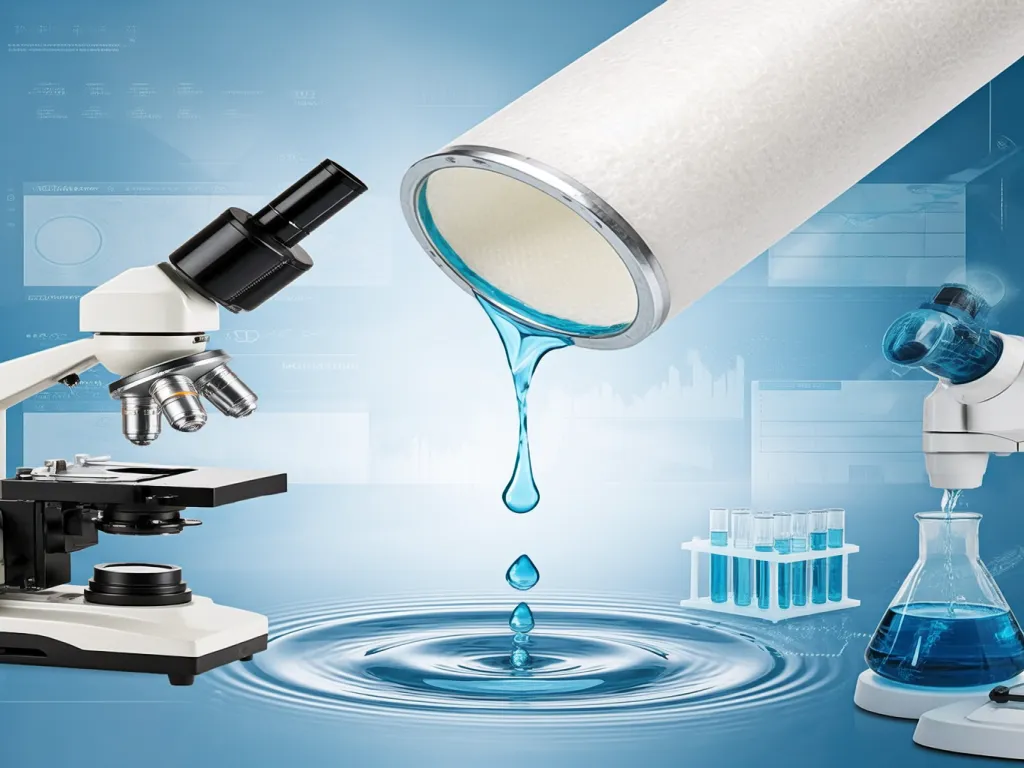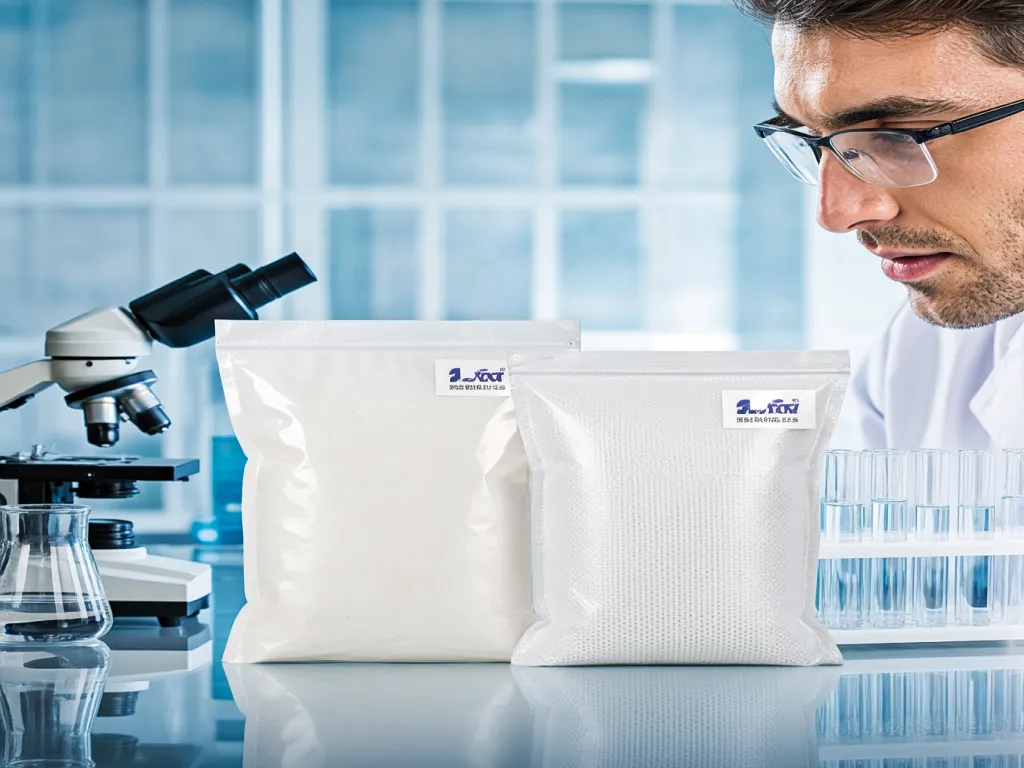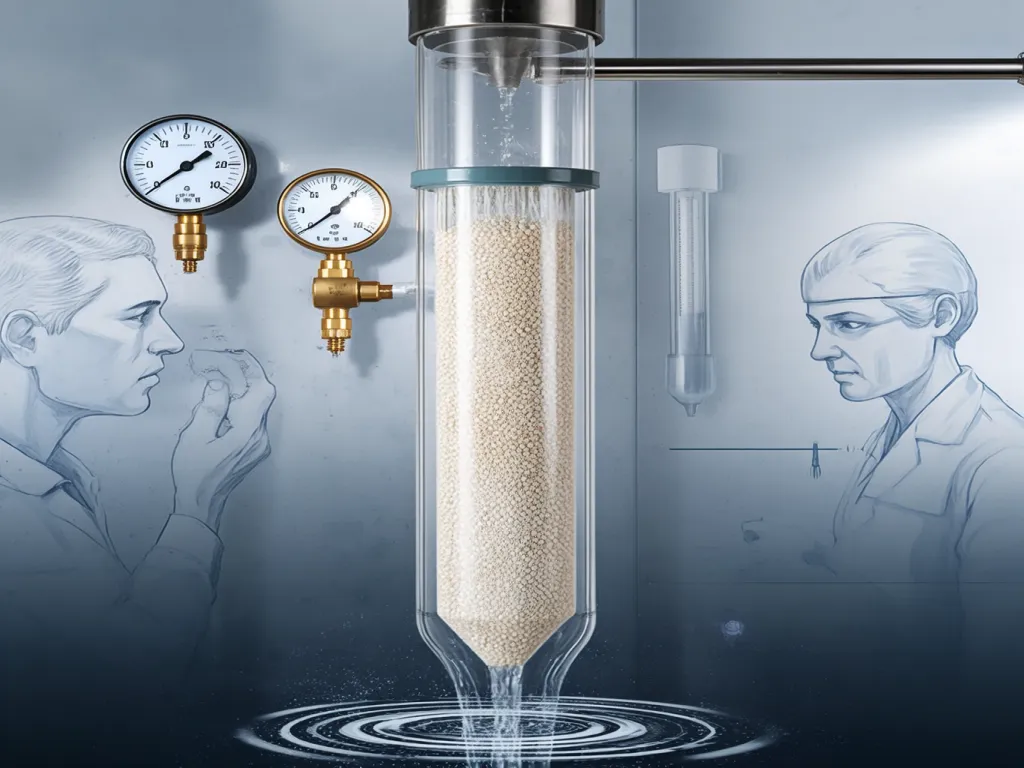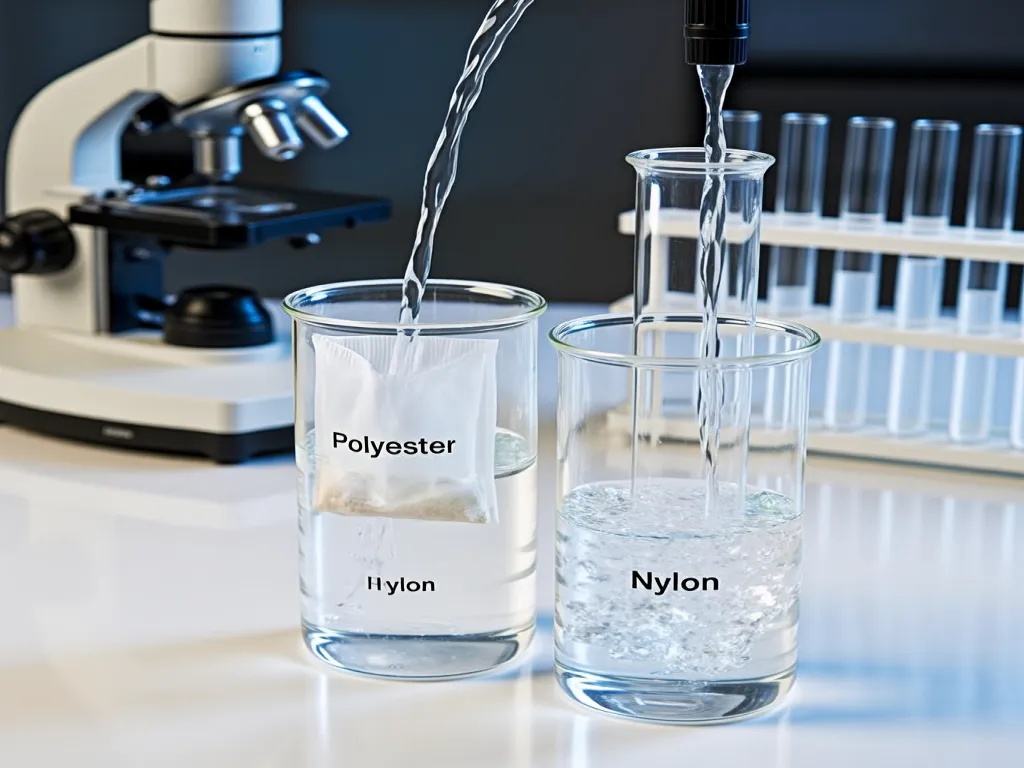1 Micron Water Filter Bag: Polyester vs Nylon Showdown
When it comes to industrial water filtration, precision is key. Enter the 1 micron water filter bag—a game-changer for those demanding ultra-fine filtration. But here’s the twist: not all 1 micron filter bags are created equal. Polyester and nylon, the two heavyweights in the material arena, offer distinct advantages. Ever wondered which one can truly elevate your filtration game? Let’s dive into the nitty-gritty of polyester versus nylon in 1 micron water filter bags and uncover the material that might just be your filtration savior.

Polyester Filter Bag Characteristics: A Deep Dive into Filtration Accuracy, Chemical Stability, and Temperature Resistance
When it comes to industrial filtration, especially in applications requiring high precision like water treatment, the choice of filter bag material is crucial. Among the various options, polyester stands out as a popular choice for 1 micron water filter bags. But why? Let’s break down the key characteristics of polyester filter bags—filtration accuracy, chemical stability, temperature resistance, and performance in different water qualities—to understand why they might be the right fit for your needs.
First off, filtration accuracy is where polyester truly shines. A 1 micron polyester water filter bag is designed to capture particles as small as 1 micron in size. This level of precision is essential in industries where even the tiniest contaminant can cause significant issues, such as in pharmaceutical manufacturing or semiconductor production. The tightly woven polyester fibers create a dense matrix that effectively traps particles, ensuring the purity of the filtered liquid.
But filtration isn’t just about size; it’s also about consistency. Polyester filter bags maintain their filtration efficiency over time, even under varying flow rates and pressures. This reliability is a huge plus for industries that require continuous operation without frequent filter changes. Imagine the cost savings and operational efficiency gained from a filter that doesn’t need constant replacement!
Now, let’s talk about chemical stability. Polyester is known for its excellent resistance to a wide range of chemicals. Whether you’re dealing with acidic, alkaline, or solvent-based liquids, a polyester filter bag can handle it. This chemical inertness makes it an ideal choice for applications where the filtered liquid might be corrosive or reactive. You won’t have to worry about the filter degrading or leaching harmful substances into your product stream.
Temperature resistance is another area where polyester excels. These filter bags can withstand high temperatures without losing their structural integrity or filtration efficiency. This is particularly important in industries like food and beverage processing or chemical manufacturing, where the filtration process might involve heated liquids. A polyester filter bag ensures that the filtration remains effective even under thermal stress.
But how does polyester perform in different water qualities? Whether you’re dealing with tap water, groundwater, or wastewater, polyester filter bags adapt well. Their robust construction allows them to handle varying levels of turbidity, suspended solids, and organic matter. In tap water applications, for instance, a 1 micron polyester filter bag can effectively remove sediment, chlorine taste, and odor, providing clean and safe drinking water. In wastewater treatment, it can capture fine particles and even some microorganisms, contributing to the overall purification process.
One might wonder, though, how polyester compares to other materials like nylon in terms of filtration performance. While both materials have their strengths, polyester’s combination of filtration accuracy, chemical stability, and temperature resistance often makes it the preferred choice for 1 micron applications. Nylon, on the other hand, might offer better strength and durability in certain high-pressure scenarios, but polyester’s overall balance of properties usually tips the scale in its favor for general-purpose water filtration.

Filtration Accuracy in Detail
The filtration accuracy of a 1 micron polyester water filter bag is a result of its intricate fiber structure. The fibers are woven in such a way that they create a labyrinth of paths for the liquid to pass through. As the liquid flows, particles larger than 1 micron get trapped in these paths, ensuring that only clean liquid passes through. This level of precision is unmatched by many other materials, making polyester a go-to choice for applications where purity is paramount.
Chemical Stability Explained
Chemical stability in polyester filter bags is due to the inherent properties of the polyester polymer. It doesn’t react with most chemicals, which means it won’t degrade or release harmful byproducts during filtration. This is especially important in industries like pharmaceuticals, where any contamination could compromise the entire batch. With polyester, you can rest assured that your filtration process is safe and effective.
Temperature Resistance Unpacked
Temperature resistance in polyester filter bags is a result of the material’s high melting point and thermal stability. Even when exposed to high temperatures, the polyester fibers maintain their shape and filtration efficiency. This is crucial in applications where the liquid being filtered is heated, as it ensures consistent performance without the need for frequent filter replacements.

Nylon Material Filter Bag Advantages: Analyzing Strength, Wear Resistance, and Tensile Properties, as Well as Handling High-Pressure, High-Flow Rate Filtration Environments
When it comes to 1 micron water filter bags, the choice of material can make or break your filtration system’s performance. While polyester has its merits, nylon filter bags truly shine in demanding industrial settings. Let’s dive deep into why nylon might just be your best bet for high-pressure, high-flow rate applications.
First off, let’s talk about strength. Nylon fibers are incredibly strong for their weight. In fact, nylon is often used in applications where high tensile strength is crucial – think parachutes, ropes, and yes, industrial filter bags. This strength translates directly to better performance in filtration systems. A 1 micron nylon filter bag can withstand significantly higher pressures than its polyester counterpart without deforming or rupturing. That means you can push more water through faster without compromising filtration quality.
But strength alone isn’t enough. What about wear and tear? This is where nylon really flexes its muscles. The material’s inherent wear resistance means your filter bags will last longer, even in abrasive environments. Imagine filtering water with high levels of suspended solids – polyester might start showing signs of wear after just a few cycles, while nylon keeps performing like new. This durability directly impacts your bottom line by reducing replacement frequency and maintenance costs.
Nylon’s Performance Under Pressure
One of the most impressive features of nylon filter bags is their ability to handle extreme pressures. In systems where water is pumped at high pressure (we’re talking several bar above atmospheric), polyester bags can struggle. They might stretch, leading to bypass where unfiltered water sneaks through. Nylon, on the other hand, maintains its shape and filtration integrity. This pressure resistance is particularly valuable in applications like reverse osmosis pre-filtration or high-pressure membrane systems where consistent performance is critical.
Flow Rate Management with Nylon
High flow rates demand materials that can handle the volume without compromising. Nylon’s molecular structure gives it excellent dimensional stability. Even when water is rushing through at gallons per minute, a properly sized nylon 1 micron filter bag will maintain its pore structure. This means you get consistent 1 micron filtration regardless of flow rate – something polyester can’t always guarantee. For facilities needing to process large volumes quickly, this translates to better throughput and more efficient operations.
Chemical Resistance and Longevity
While we’re focusing on physical properties, we can’t ignore nylon’s chemical resistance. It withstands a wide range of pH levels and many common industrial chemicals better than polyester. For a detailed understanding of chemical compatibility in filtration, you may refer to this chemical compatibility guide for filtration. This chemical stability means your filter bags won’t degrade prematurely when exposed to cleaning agents or certain water contaminants. The result? Fewer unexpected failures and more predictable maintenance schedules. When you factor in the longer lifespan, nylon often provides better total cost of ownership despite a slightly higher initial price.

Comprehensive Comparison and Selection Guide: Polyester vs Nylon for 1 Micron Water Filter Bags
When it comes to selecting the right material for your 1 micron water filter bag, the decision isn’t just about picking a name off a shelf.
When it comes to selecting the right material for your 1 micron water filter bag, the decision isn’t just about picking a name off a shelf. You’re diving into a world where performance, durability, and cost-effectiveness play pivotal roles. So, how do you decide between polyester and nylon? Let’s break it down, application by application, to help you make an informed choice.
First off, let’s talk about filtration efficiency.
First off, let’s talk about filtration efficiency. Both polyester and nylon excel at capturing particles down to 1 micron, but their paths to achieving this are slightly different. Polyester, with its fine fiber structure, offers excellent particle retention, making it a go-to for applications where water purity is paramount, like in pharmaceuticals or food and beverage processing. For a deeper dive into polyester filter options, you may explore wholesale polyester pocket filter bags. Nylon, on the other hand, boasts a slightly more open weave, which might seem counterintuitive for filtration. However, this characteristic allows for higher flow rates, making it ideal for scenarios where you need to process large volumes of water quickly, such as in industrial cooling systems or municipal water treatment plants.
Now, onto lifespan.
Now, onto lifespan. This is where the rubber really meets the road. Polyester bags are known for their chemical resistance and can withstand a wide pH range, making them suitable for harsh chemical environments. They’re also less prone to bacterial growth, which can be a boon in applications where water stagnation is a concern. But don’t count nylon out just yet. Its inherent strength and abrasion resistance mean it can handle high-pressure environments and repeated cleanings without losing structural integrity. If your operation involves frequent filter changes or backwashing, nylon might just be your durability champion.
Cost-effectiveness is another critical factor.
Cost-effectiveness is another critical factor. Polyester bags are generally more affordable upfront, making them attractive for budget-conscious projects. However, when you factor in their longer lifespan in certain environments, the total cost of ownership might tilt the balance. Nylon, while initially pricier, can offer savings over time, especially in high-flow, high-pressure scenarios where its durability reduces the need for frequent replacements. For more information on nylon filter options, consider checking out PTFE-coated polyester dust filter bags (though primarily polyester, similar durability considerations apply to advanced filter materials).
So, how do you choose?
So, how do you choose? It boils down to your specific needs. If you’re dealing with corrosive chemicals or need the highest level of water purity, polyester might be your best bet. For high-volume, high-pressure applications where durability and flow rate are king, nylon could be the way to go. And remember, it’s not just about the initial cost; consider the long-term savings and performance benefits each material offers.
Still unsure?
Still unsure? Don’t hesitate to reach out to manufacturers or suppliers for samples or trials. Sometimes, seeing how a filter performs in your actual environment can make the decision crystal clear. After all, the right 1 micron water filter bag material can mean the difference between smooth operations and costly downtime.
Navigating the world of 1 micron water filter bags can be tricky, but understanding the differences between polyester and nylon materials is a game-changer. Polyester excels in chemical stability and cost-effectiveness, while nylon shines with its robustness and high-pressure resilience. Choosing the right material for your 1 micron water filter bag isn’t just about specs—it’s about aligning with your specific filtration needs. Ready to make an informed decision? Dive deeper into our material comparison guide and equip yourself with the knowledge to select the perfect filter bag for your industrial applications. The quest for optimal filtration starts here—what will you choose?
